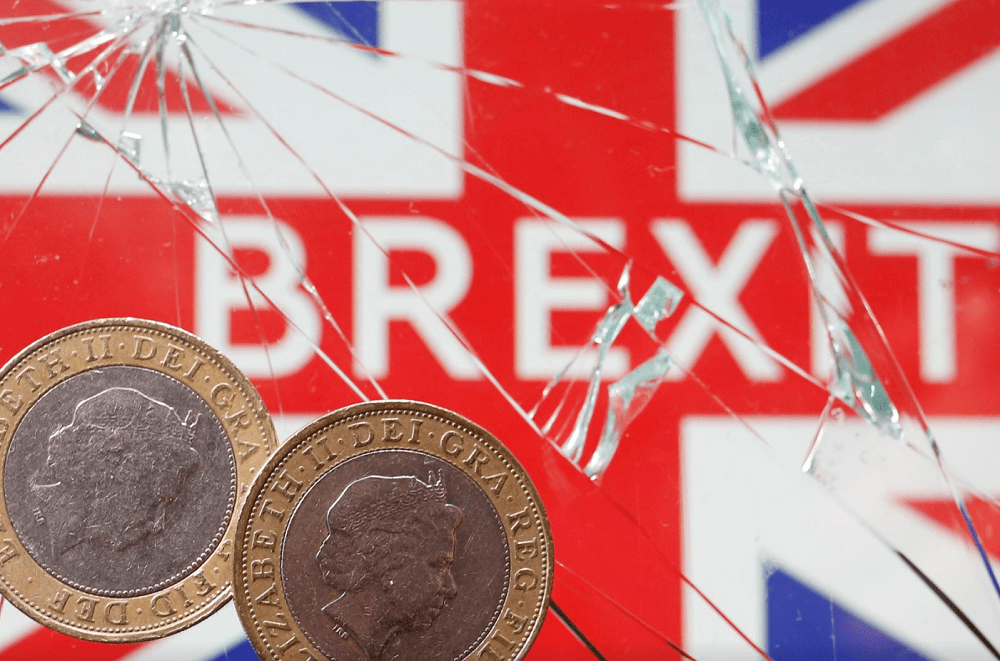The latest bout of sabre-rattling between Britain and the EU is upping the premium investors demand for holding UK assets for fear of a chaotic Brexit outcome with hugely damaging consequences for the economy. The pound is down 4% against the dollar this month. Now as the UK parliament starts debating legislation that defies international law by breaching the EU divorce treaty, British shares, option markets and bonds are also swiftly pricing the Brexit premium.

1) STERLING IMPLIED VOLATILITY
Implied volatility, options that show investor expectations of future price swings in a currency, has shot up on sterling/dollar. One-month volatility, or ‘vol’ in trader parlance, is at five-month highs around 12% — well above implied vol on other G7 currencies. Options called risk reversals too show the implied vol premium to buy sterling ‘puts’ over ‘calls’ has risen sharply this month.
2) EQUITY RISK
Since Britain voted in a June 2016 referendum to exit the EU, its stocks have underperformed. This year, the FTSE index lags the European STOXX benchmark by 17% — partly because the former is heavy on poorly performing energy and commodity firms. But Brexit is also to blame.
3) BORROWING PREMIUM
Investors also want a Brexit premium to lend to British companies, reflected above all in bonds issued by banks. For instance, the gap between the yield on Barclays’s September 2023 euro-denominated bond and a Deutsche Bank note maturing the same month has widened of late to the highest in nearly three months around 38 basis points.
4) CURVE STEEPENING
Brexit premia may also be contained in a steeper UK gilt yield curve. Money markets have brought forward bets of a Bank of England rate cut, pricing negative interest rates for early-2021.
5) INFLATION EXPECTATIONS
Market-based measures of future UK inflation have ticked up, a pattern seen also after the 2016 referendum when the pound crash lifted inflation expectations. The latest rise in inflation expectations coincided with the bout of pound weakness, suggesting it is Brexit-related and not down to COVID-19 reflation, said Viraj Patel, global macro and currency strategist at Arkera.
Brexit risk premium returns to UK markets, Reuters, Sep 14